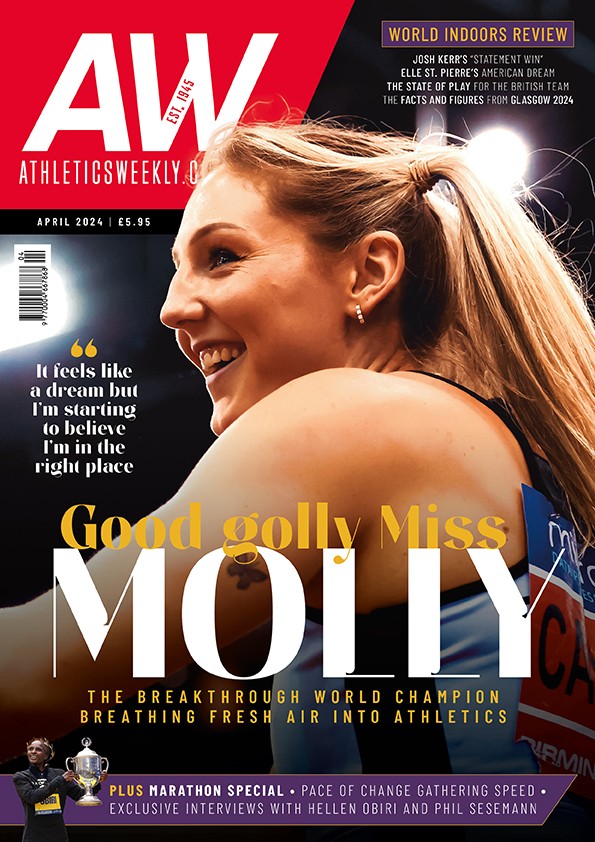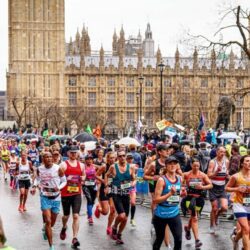British distance star gets ninth global gold with 5000m victory, while Matthew Centrowitz and Caster Semenya also take titles on final session of Rio 2016 track action
Run fast or run slow, in Rio Mo Farah further proved that when it comes to major championship distance running he is the master as he won the 5000m title to complete an incredible Olympic ‘double double’ on the final evening of track action.
Clocking 13:03.30, the 31-year-old added gold in the 12.5-lap event to his 10,000m title from the previous weekend for his ninth global gold overall after his wins in London four years ago, his world ‘double double’ in Moscow 2013 and Beijing 2015 and his first major win in Daegu in 2011.
That is the third fastest time in Olympic history, with only Kenenisa Bekele and Eliud Kipchoge having gone quicker in 2008, and Farah’s performance sees him emulate Lasse Virén, who won his four titles in 1972 and 1976.
“It’s every athlete’s dream but I can’t believe it,” Farah said.
“Being away from my family for so long, I knew I had to do something for them. I just want to go home now and see my beautiful kids and hang my medals around their necks.”
As usual, Farah started off at the back of the pack, waiting for the race to really get going. But instead of a slow and tactical affair, Ethiopia’s Dejen Gebremeskel took the group through the first kilometre in 2:37.40 with Farah in eighth.
Farah had moved up to sixth by 2km, which saw Gebremeskel and team-mate Hagos Gebrhiwet to the fore in 5:15.96. By 3km the Briton was just behind Gebremeskel, with 7:57.15 on the clock.
After another 200m, Farah moved to the front and with four laps to go he led from Kenyan-born Bahraini Albert Rop and the third Ethiopian in the field, Muktar Edris.
Farah’s British team-mate Andrew Butchart moved up alongside him with three laps to go but then Uganda’s Joshua Kiprui Cheptegei moved ahead. Keeping his cool, Farah threw down a 1:52.65 last 800m and his killer kick saw him clock a final lap of 52.83 to surge away from USA’s Paul Chelimo and Gebrhiwet.
Butchart took more than four seconds off his PB with a Scottish record 13:08.61, a time which moves him from 10th to third on the UK all-time list and initially saw him secure seventh place. But a short while later Chelimo, Edris and Canada’s Mohammed Ahmed were disqualified, but then Chelimo and Ahmed reinstated, moving the Scot to a superb sixth on his Olympic debut.
As a result of those disqualifications, USA’s Bernard Lagat – racing at his fifth Olympics at the age of 41 – had moved into bronze medal position with his time of 13:06.78 but moved down into fifth after the reinstatements – Chelimo’s silver secured in a 13:03.90 PB and Gebrhiwet’s bronze bagged in 13:04.35.
Earlier action had seen Matthew Centrowitz claim USA’s first men’s Olympic 1500m gold in over a century as the long-time leader stayed out of trouble at the front of the field and couldn’t be caught after a 50.62 last lap.
Passing 400m in 66.9 in a tactical race, Centrowitz remained ahead at the bell and picked up the pace to hold his lead in the home straight, crossing the line in 3:50.00 ahead of Algeria’s defending champion Taoufik Makhloufi with 3:50.11 and New Zealand’s Nick Willis, who ran 3:50.24. Djibouti’s Ayanleh Souleiman placed fourth and Abdalaati Iguider fifth.
After sitting at the back of the pack, Kenya’s 2008 champion and three-time world gold medallist Asbel Kiprop put in a mid-race surge but couldn’t stick with the pace in the last 200m, clocking 3:50.87 for sixth.
Britain’s Charlie Grice, whose Rio preparations had included training with Farah at altitude, finished 12th in 3:51.73 on his Olympic debut.
Caster Semenya had been one of the biggest gold medal favourites at the Games and the South African duly delivered, clocking a 1:55.28 national record after surging ahead to beat Burundi’s world indoor champion Francine Niyonsaba with 1:56.49 and Kenya’s world indoor bronze medallist Margaret Wambui with 1:56.89.
Finishing just outside the medals, Melissa Bishop broke the Canadian record with 1:57.02 for fourth and a fine run by Britain’s Lynsey Sharp saw her improve her Scottish record to 1:57.69 for sixth.
» For in-depth coverage from Rio 2016, see Athletics Weekly’s August 18, 25 and September 1 issues
» Further coverage of Saturday night’s action, including GB’s 4x400m bronze, can be found online here














